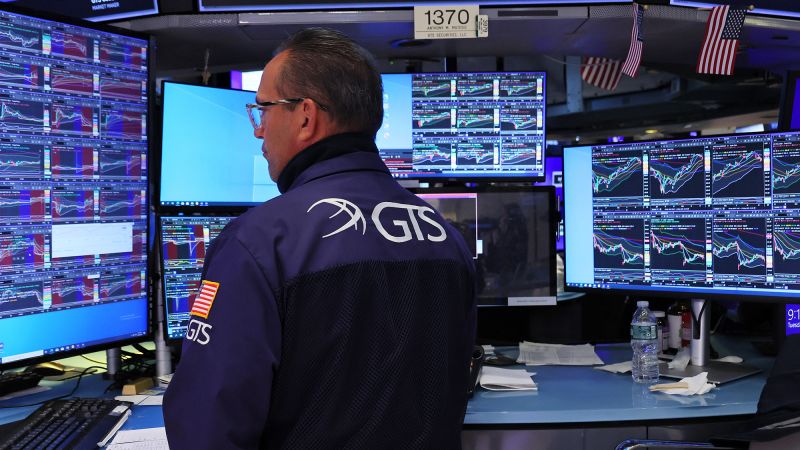President Donald Trump’s contentious relationship with major technology companies, especially Apple, has raised concerns not only for the tech giant’s financial performance but also for the retirement savings of many Americans. The ongoing trade war initiated by the president threatens Apple’s business model, which significantly relies on international supply chains. As a result, the company has seen its stock plummet nearly 20% this year, following a record high in December. A stark example of this downturn was observed earlier this month when Apple experienced a single-day stock drop of 3% after Trump insisted that all Apple production be relocated to the United States.
Consequently, Americans’ retirement savings, particularly those invested in traditional 401(k) plans, are feeling the effects of this volatility. Apple holds a pivotal position in many retirement portfolios as it is one of the most prominent components of the S&P 500 index. According to Howard Silverblatt, a senior index analyst at S&P Dow Jones Indices, Apple accounts for approximately 6% of the S&P 500’s overall value, making its stock performance particularly relevant to the retirement savings of ordinary Americans.
The market’s instability has been palpable in 2024, with Apple shedding nearly $1 trillion in market value after hitting $3.9 trillion in December. Recent market trends also indicate that other tech titans like Amazon, Google, and Tesla have experienced similar declines in their stock values—6%, 9%, and 14%, respectively—further complicating the retirement landscape for 401(k) investors. In contrast, the two largest companies in the U.S., Microsoft and Nvidia, have shown minor increases, which haven’t been enough to uplift the overall S&P 500 that gained a meager 0.5% this year.
Economists and investment analysts are beginning to emphasize the broader implications of persistent uncertainty in the market. Scott Ladner, Chief Investment Officer at Horizon Investments, noted that an economy cannot consistently function amid remarkably high levels of uncertainty without facing eventual economic consequences. The retreating performance of major U.S. stocks, especially those widely held by both institutional and retail investors, has left many grappling with market volatility.
As of the end of 2024, Americans collectively possessed $44.1 trillion in retirement assets, with about $8.9 trillion in 401(k) plans alone. Although the volatile stock market can be distressing, it’s essential to remember that retirement savings are typically long-term investments. Short-term fluctuations are often counterbalanced by long-term growth, as evidenced by the recent rally in the S&P 500.
Tim Steffen, director of advanced planning at Baird Private Wealth Management, emphasizes the importance of portfolio diversification. While funds tracking indexes such as the S&P 500 are generally diversified, individual 401(k) plans may offer varying levels of exposure to market sectors. Understanding the investment in blue-chip stocks like Apple is crucial for gauging the impact of economic policies on portfolios during turbulent periods.
Market downturns can also serve as opportunities to reassess individual exposure and increase diversification. Investment experts suggest considering mutual funds or exchange-traded funds that track bonds or international stocks to spread risk and mitigate adverse impacts on portfolios. Furthermore, Thomas Martin, a senior portfolio manager at Globalt Investments, believes that while Apple has faced substantial challenges, it remains a long-term investment worth holding.
Analysts like Angelo Zino from CFRA Research point out that Apple is navigating two significant uncertainties this year: the ongoing tariff discussions and challenges presented by antitrust concerns facing its competitor, Alphabet (Google’s parent company). Despite these threats, analysts still maintain a positive outlook on Apple’s investment potential, highlighting its robust cash flow and capital returns.
In summary, the current climate poses significant challenges for Apple and, by extension, the retirement savings of millions of Americans. However, investors are urged to maintain a long-term perspective to weather the inevitable market fluctuations. Adapting investment strategies, fostering portfolio diversification, and resisting impulse-driven decision-making during market dips can safeguard individuals’ financial futures while securing their retirement savings against ongoing economic uncertainties.



